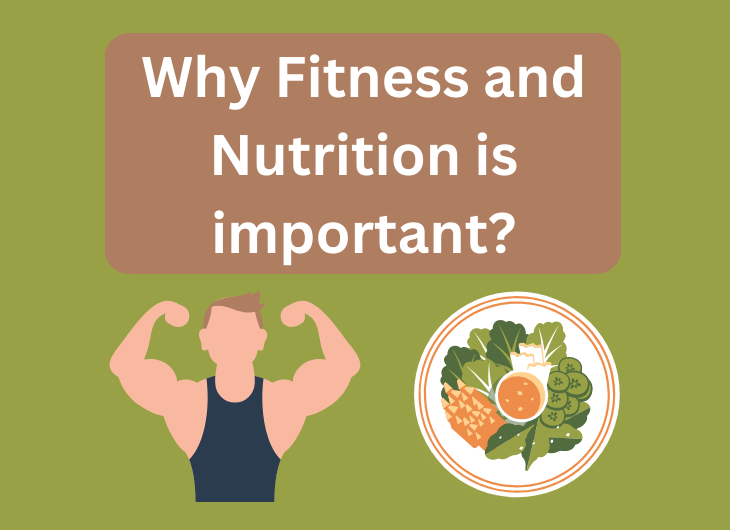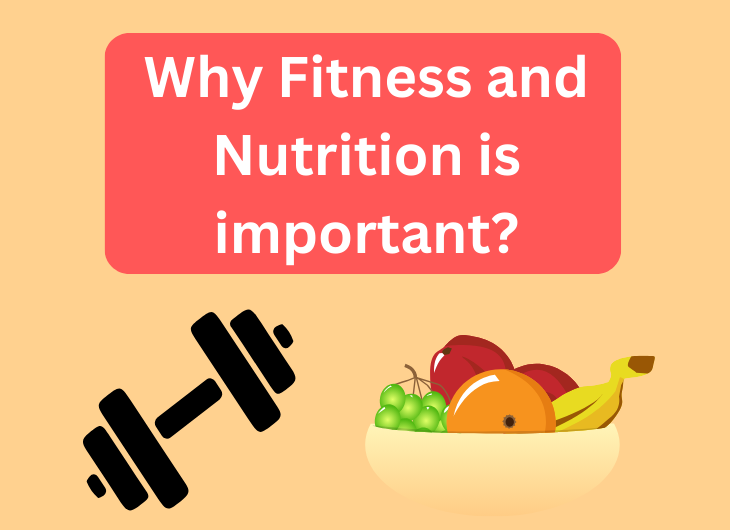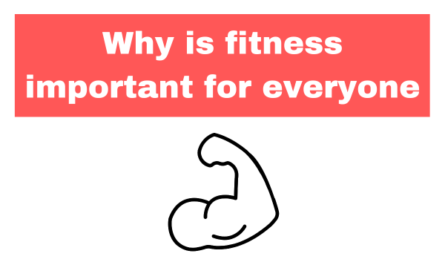Why Fitness and Nutrition is important for a Healthy Life?
In the fast-paced modern world, prioritizing our health and well-being often takes a back seat. We get caught up in the hustle and bustle of daily life, neglecting our bodies and minds. However, understanding the importance of fitness and nutrition is paramount for leading a fulfilling and prosperous life. This blog aims to delve deep into why prioritizing fitness and nutrition should be a non-negotiable aspect of our lives.
Understanding Fitness
Fitness refers to the state of being physically fit and healthy, which involves various components like cardiovascular endurance, muscular strength, flexibility, and body composition. Incorporating fitness activities into our routine has numerous benefits that extend beyond just physical health.
1. Physical Health:
Regular physical activity, including cardiovascular exercises, strength training, and flexibility exercises, helps maintain a healthy weight, and reduce the risk of chronic diseases such as heart disease, diabetes, and certain types of cancer.
2. Mental Health:
Exercise is a potent tool for managing stress, anxiety, and depression. It triggers the release of endorphins, the body’s natural mood lifters, promoting an overall sense of well-being and reducing feelings of sadness or irritability.
3. Improved Sleep:
Regular exercise can help you fall asleep faster and deepen your sleep. However, it’s important to avoid vigorous workouts close to bedtime as it might have the opposite effect.
4. Increased Energy:
Regular physical activity improves muscle strength and endurance, giving you more energy for daily activities and reducing fatigue.
5. Longevity:
Leading an active lifestyle has been linked to a longer lifespan. Regular exercise, combined with a healthy diet, significantly contributes to a longer, more fulfilling life.
Emphasizing Nutrition
Nutrition is the foundation of a healthy life. It refers to the process of providing or obtaining the food necessary for health and growth. Proper nutrition involves consuming a well-balanced diet that includes essential nutrients, vitamins, minerals, and adequate hydration.
1. Fuel for the Body:
Food is the fuel that powers our bodies. Each nutrient serves a specific purpose, providing energy and enabling the body to function optimally.
2. Healthy Growth and Development:
Proper nutrition is crucial, especially for children, adolescents, and pregnant women. It supports growth, brain development, and overall health.
3. Disease Prevention:
A healthy diet can prevent various chronic diseases such as obesity, heart disease, diabetes, and certain cancers.
4. Weight Management:
Balanced nutrition, combined with regular exercise, helps in maintaining a healthy weight or achieving weight loss goals.
5. Improved Immune Function:
A well-nourished body has a stronger immune system, making it better equipped to fight off infections and illnesses.
The Symbiotic Relationship: Fitness and Nutrition
Fitness and nutrition are intricately linked, working together to maintain a healthy body and mind. A well-rounded fitness routine is incomplete without proper nutrition, and a healthy diet is most effective when complemented by regular physical activity.
1. Energy Balance:
Balancing the energy you consume through food with the energy you expend through physical activity is essential for maintaining a healthy weight and overall well-being.
2. Muscle Recovery:
Nutrition plays a critical role in muscle recovery after a workout. Consuming protein-rich foods helps repair and build muscles, enhancing the benefits of exercise.
3. Optimal Performance:
A well-balanced diet ensures that your body has the nutrients it needs to perform at its best during exercise, aiding endurance, strength, and overall performance.
How to Incorporate Fitness and Nutrition into Your Life
Understanding the importance of fitness and nutrition is the first step. Here are some practical tips on how to incorporate them into your daily routine:
1. Regular Exercise:
- Start with a workout routine that suits your fitness level and gradually increase intensity.
- Choose activities you enjoy to make it sustainable and fun.
- Incorporate both cardiovascular exercises (e.g., walking, running, cycling) and strength training (e.g., weight lifting, resistance bands) into your routine.
2. Balanced Diet:
- Include a variety of fruits, vegetables, whole grains, lean proteins, and healthy fats in your meals.
- Stay hydrated by drinking plenty of water throughout the day.
- Be mindful of portion sizes and avoid overeating or undereating.
3. Meal Planning:
- Plan your meals in advance to ensure a well-balanced diet and avoid last-minute unhealthy choices.
- Prepare healthy snacks to have on hand when hunger strikes between meals.
4. Consult Professionals:
- Consider consulting a nutritionist or dietitian to create a personalized meal plan based on your goals and needs.
- Seek guidance from a fitness trainer to design a suitable exercise program.
5. Consistency is Key:
- Consistency is crucial for both fitness and nutrition. Please stick to your routine and make it a habit.
- Set achievable goals and celebrate your progress along the way.
FAQS: Why Fitness and Nutrition is important?
1. What are the key components of physical fitness?
Answer: Physical fitness comprises cardiovascular endurance, muscular strength, muscular endurance, flexibility, and body composition. It’s important to work on each of these components to achieve overall fitness.
2. How much exercise should I do per week to maintain good health?
Answer: The American Heart Association recommends at least 150 minutes of moderate-intensity aerobic activity or 75 minutes of vigorous-intensity activity per week, along with muscle-strengthening activities on two or more days a week.
3. What should a balanced diet include?
Answer: A balanced diet should include a variety of fruits, vegetables, whole grains, lean proteins, and healthy fats. It’s essential to consume appropriate portion sizes and maintain a good balance of macronutrients (carbohydrates, proteins, and fats) for optimal nutrition.
4. How can I improve my flexibility?
Answer: To improve flexibility, regularly perform stretching exercises targeting major muscle groups. Incorporate static and dynamic stretches, holding each stretch for about 15-30 seconds without bouncing. Yoga and Pilates are excellent practices to enhance flexibility.
5. What role does hydration play in fitness and nutrition?
Answer: Hydration is vital for regulating body temperature, aiding digestion, and supporting overall bodily functions. Aim to drink at least 8 cups (64 ounces) of water per day, adjusting based on activity level, climate, and individual needs.
6. How can I boost my metabolism naturally?
Answer: To naturally boost metabolism, engage in regular physical activity, and strength training, and consume small, frequent meals throughout the day. Including metabolism-boosting foods like green tea, spicy foods, and protein-rich meals can also help.
7. Is it possible to lose weight through diet alone, without exercise?
Answer: Yes, weight loss is possible through a calorie-controlled diet. However, incorporating regular exercise enhances weight loss, helps maintain muscle mass, improves overall fitness, and provides numerous health benefits.
8. What are the benefits of pre-and post-workout nutrition?
Answer: Pre-workout nutrition provides the energy needed for the workout, enhancing performance. Post-workout nutrition aids in muscle recovery and replenishing glycogen stores, helping the body recover and rebuild after exertion.
9. Can I follow a vegetarian or vegan diet and still meet my nutritional needs?
Answer: Yes, a well-planned vegetarian or vegan diet can provide all necessary nutrients. Ensure you consume a variety of plant-based foods, including legumes, grains, fruits, vegetables, nuts, and seeds, to meet your nutritional requirements.
Conclusion
Prioritizing fitness and nutrition is not just about fitting into a certain dress size or achieving a particular physique. It’s about investing in your long-term health and happiness. A well-nourished body and an active lifestyle lead to increased energy, improved mental health, and a higher quality of life. Understanding the symbiotic relationship between fitness and nutrition is the foundation for a balanced approach to a healthier, more fulfilling life. Start today by taking small steps towards a healthier lifestyle, and remember, every step counts on the journey to a better you.
Visit the link to read more: https://family-fitness-fun.com/how-to-never-miss-your-daily-workout/





